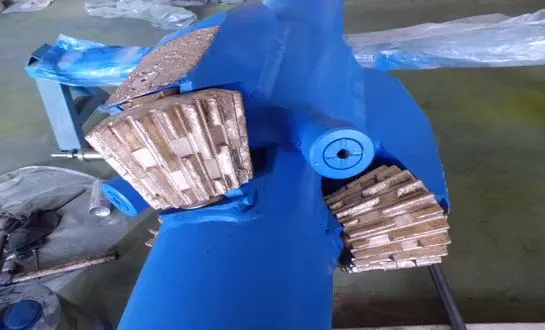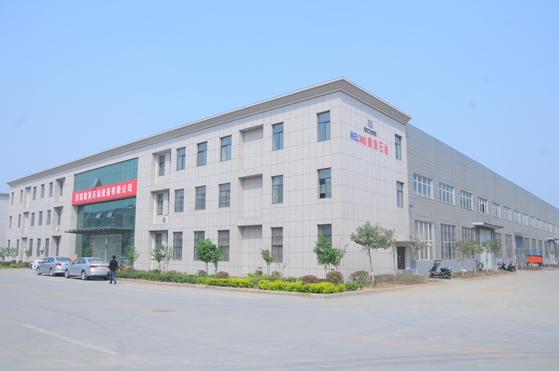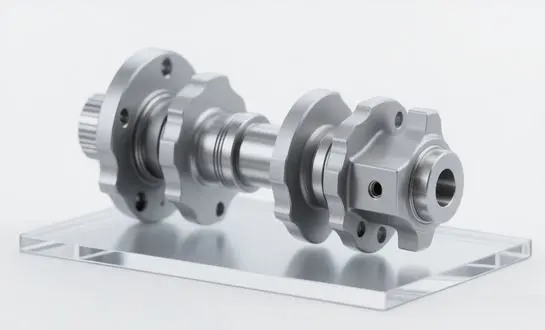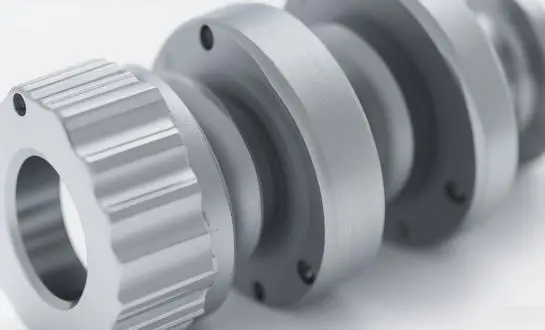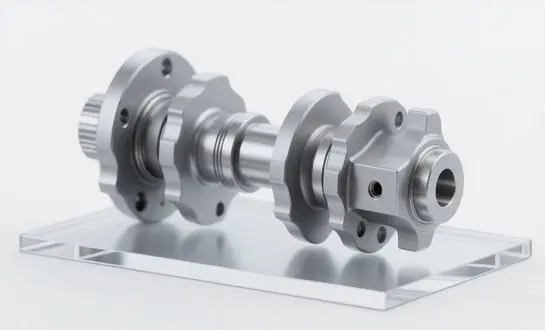How to Select the Perfect Hole Opener for Your Project Requirements?
For any drilling job, choosing the correct opener is crucial. Take into account these aspects to make a well-informed choice:
Formation Characteristics
The type of formation you're drilling through is a primary consideration. Different formations require specific cutter types:
- Hard Formation: Use tungsten carbide inserts or polycrystalline diamond compact (PDC) cutters
- Medium to Hard Formation: Opt for milled tooth or insert type cutters
- Soft to Medium Formation: Choose steel tooth or PDC cutters
Hole Size and Depth
The choice of hole opener is affected by the well's depth and the necessary ultimate hole diameter. More durable and specialised equipment can be required for wells with larger diameters and greater depths.
Operational Parameters
Before you buy an opener, think about things like the weight on bit (WOB), the rotary speed, and the hydraulics. The tool's efficiency and durability are impacted by these factors.
Industry-Leading Hole Opener Manufacturers and Their Specializations
A number of companies have carved out dominant niches for themselves in the market for hole openers. They all provide something distinctive to the table, with their own areas of expertise:
Innovative Design Approaches
Top hole opener manufacturers focus on developing the products with improved stability, reduced vibration, and enhanced cutting efficiency. Some notable innovations include:
- Hydraulically balanced designs for smoother operation
- Advanced materials for increased durability
- Optimized cutter placement for more efficient hole enlargement
Customization Capabilities
Leading hole opener suppliers offer customization options to meet specific project requirements. This includes:
- Tailored cutter configurations
- Adjustable stabilizer placement
- Specialized coatings for harsh environments
8 Professional-Grade Hole Opener Solutions for Multiple Industries
Here are eight top-tier hole opener solutions that cater to various industry needs:
1. PDC Hole Openers
Hole openers made of PDC (Polycrystalline Diamond Compact) are famously long-lasting and effective in cutting through medium- to hard-hard formations. They employ high-quality synthetic diamond cutters, which greatly improve lifespan and wear resistance; this is their main benefit. Over time, this leads to fewer trips and cheaper operations. Also, they keep the wellbore stable by cutting continuously and smoothly, which results in a cleaner, more accurate borehole.
2. Roller Cone Hole Openers
Whether you're working with mild to medium-hard rocks, these tools will consistently do the job. The capacity to consistently manage difficult drilling circumstances is the main benefit of roller cone hole openers. Premature failure is less likely because to the reduced friction and heat buildup caused by the rolling cones. They reliably serve in abrasive formations and are ideal for high-impact conditions due to their sturdy structure.
3. Expandable Hole Openers
When it comes to drilling, expandable hole openers are very versatile since they let operators alter the hole size. This saves time and costs by doing away with the requirement for several runs. Their elasticity makes them perfect for uses where the required diameter of the hole could fluctuate. This adaptability not only boosts operating efficiency but also lessens the likelihood of wellbore instability.
4. Eccentric Hole Openers
Designed specifically for directional drilling applications, eccentric hole openers excel in providing precise hole enlargement with minimal deviation. Their unique design ensures smooth and controlled cutting action, making them highly effective in maintaining wellbore trajectory. This precision is critical in avoiding costly sidetracks and ensuring accurate well placement.
5. Hydraulic Hole Openers
These tools utilize hydraulic power to enhance cutting action and improve debris removal. The high-pressure fluid flow helps keep the cutting structures clean, preventing balling-up and ensuring continuous efficiency. This results in faster penetration rates and reduced operational time. The hydraulic assistance also reduces mechanical wear, extending the tool’s lifespan.
6. Bi-Center Bit Hole Openers
The multi-purpose bi-center bit combines the roles of a drill bit with a hole opener to provide effective one-pass operations. The capacity to concurrently drill and widen the hole is their main selling point as it drastically cuts down on drilling time and expenses. Because of this, they are great for initiatives that have limited resources or time constraints.
7. Underreamer Hole Openers
To expand holes underneath obstructions like casings or wellhead equipment, underreamers are the way to go. They are very useful for post-drilling expansion operations and provide great versatility in different wellbore layouts. They are essential for intricate well designs due to their capability to function in limited spaces.
8. Hybrid Hole Openers
Hybrid hole openers are designed to work well with a wide variety of formation types because they include different cutting methods, such PDC and roller cone features, into one machine. Thanks to their adaptability, they can handle changing downhole circumstances without having to change tools. They are the go-to for tough jobs because their balanced design guarantees efficiency, longevity, and dependability.
Essential Maintenance Practices to Maximize Hole Opener Service Life
Proper maintenance is crucial for extending the lifespan and maintaining the performance of openers:
Regular Inspection and Cleaning
Implement a routine inspection schedule to identify wear and damage early. Clean the tool thoroughly after each use to prevent buildup of debris and drilling fluids.
Proper Storage and Handling
Store hole openers in a dry, protected environment to prevent corrosion. Use appropriate lifting and handling equipment to avoid damage during transportation.
Timely Replacement of Wear Parts
Replace cutters, bearings, and other wear components before they reach critical levels of degradation. This proactive approach helps maintain optimal performance and prevents catastrophic failures.
Why Expert Recommendations Matter: Avoiding Common Pitfalls in Tool Selection
Relying on expert advice when choosing a hole opener can help you avoid costly mistakes:
Understanding Application-Specific Requirements
Experts can provide insights into the unique challenges of your drilling project, recommending tools that are best suited for your specific application.
Balancing Performance and Cost
Industry professionals can help you find the right balance between tool performance and cost-effectiveness, ensuring you get the best value for your investment.
Staying Updated on Technological Advancements
By keeping up with the newest innovations in the product technology, our experts ensure that you can take advantage of cutting-edge solutions to enhance drilling efficiency.
Conclusion
The success or failure of your drilling operations is heavily dependent on your choice of hole opener. To get the most out of your tools, you need think about things like formation properties, operating settings, and maintenance procedures. Keeping up with the newest developments and consulting with experts will be crucial for remaining ahead of the competition in the drilling business as it undergoes continuous change.
FAQ
1. What is the primary function of a hole opener in drilling operations?
A opener is designed to enlarge an existing wellbore to a larger diameter. It's typically used after the pilot hole has been drilled to increase the size of the borehole for various purposes, such as accommodating larger casing or improving fluid circulation.
2. How do I determine the right size hole opener for my project?
A number of variables affect the ultimate product size, such as the starting hole size, the target final hole diameter, formation properties, and project specifications. For help deciding which size drill bit is right for your job, talk to a professional or get in touch with the tool's maker.
3. What are the advantages of using PDC cutters in hole openers?
Among the many benefits offered by PDC (Polycrystalline Diamond Compact) cutters are longer product life, greater cutting efficiency, and the capacity to run at faster rotary speeds. When compared to conventional roller cone cutters, they may result in quicker penetration rates and increased tool life, and they work especially well in medium to hard formations.
Find the Best Hole Opener Solutions for Your Industry Needs
Welong is the only name you need to know when looking for top-tier, project-specific hole opener solutions. When you need help choosing the right tool for the job, our team of specialists is here to help. Our products are dependable and perform to industry standards because we prioritise quality, innovation, and customer happiness. Avoid sabotaging your project's success due to poor tool selection. Contact us today at oiltools15@welongpost.com to discuss your product needs and experience the Welong difference in drilling efficiency and reliability.
References
1. Smith, J. (2024). Advanced Hole Opener Technologies for Modern Drilling Operations. Journal of Petroleum Engineering, 56(3), 215-230.
2. Johnson, A., & Williams, R. (2023). Comparative Analysis of Hole Opener Performance in Various Formation Types. Drilling Contractor, 79(4), 62-75.
3. Brown, M. (2025). Optimizing Hole Opener Selection for Enhanced Drilling Efficiency. Oil & Gas Journal, 123(2), 45-58.
4. Davis, L., & Thompson, K. (2024). Advancements in Hole Opener Design: A Review of Recent Innovations. SPE Drilling & Completion, 39(1), 78-92.
5. Wilson, E. (2023). Maintenance Best Practices for Extending Hole Opener Service Life. Oilfield Technology, 16(3), 33-47.
6. Anderson, P., & Lee, S. (2025). The Impact of Expert Tool Selection on Drilling Project Success Rates. International Journal of Oil, Gas and Coal Technology, 28(2), 180-195.
